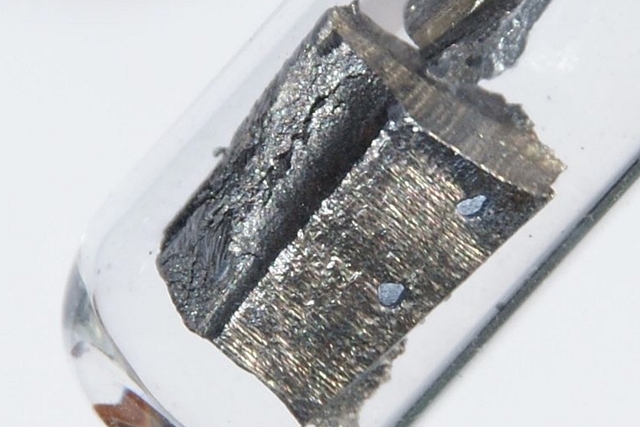
India Should Leverage Southern Africa's Rare Earth Mineral Resources: Exim Bank Report
Johannesburg, Nov 3 (PTI) India needs to form strategic alliances with southern African countries where critical rare earth minerals are produced, as the world looks to the continent to fulfil the ever-increasing demand for them, a report by India Exim Bank has suggested.
The report, titled 'Reinvigorating India’s Engagements with Southern Africa,' was released in Johannesburg this week as part of the CII-Exim Bank Regional Conclave on India-Southern Africa Growth Partnership.
“Development finance institutions from India and the African Development Bank should work closely with the governments of the southern Africa countries to understand the needs of these commercial Rare Earth Elements (REE) development attempts and support the companies to develop the value chain from end to end”, the report said.
The region is richly endowed in lithium, graphite, cobalt, nickel, copper, and other rare earth minerals.
“All of these are essential for building the global green economy of the future and they also comprise new market opportunities for net-zero transitions. Thus, India could play a significant role in the African mining value chain to optimise benefits from the demand for battery and electric value chain,” it said.
The report also suggested that India could benefit from this in its own moves towards a greener economy.
“India could set up joint exploration activities for securing critical mineral assets. Indian state-run companies can form joint venture to secure minor mineral assets such as lithium and cobalt that could fuel India's plan from mass adoption of electric vehicles by 2030.
“Strategic investment funds or import credit lines could be set with respective countries by signing MOUs to ensure India's import requirements for cobalt and lithium,” the report said.
REEs have unique physical and chemical properties that make them indispensable in the manufacture of high-technology products and has prompted them to be classified as critical metals.
Countries like South Africa, Madagascar, Malawi, Namibia, Mozambique, Tanzania, and Zambia have significant quantities of neodymium, praseodymium, and dysprosium. While relatively abundant, these elements are less minable than common ores.
“They can have direct technical applications or be used to facilitate the production and refinement of common high-technology products. Access to a steady supply of rare earth elements is key to the national security and economic viability of many countries across the world,” the report said, adding that he world's REE market is largely controlled by China.
“However, other major consumers are keen to establish alternative supply chains to ensure reliable and consistent supply at predictable prices. Africa has the potential mineral resource to compete in the global arena. However, the development of mineral resources must be supported by business models that enable maximum benefit to the country or region.
“The major REE consumers like the US, the EU, Canada, Australia, Japan, and South Korea are exploring options to develop alternative REE supply chains. Africa is one of the regions targeted as an alternative source of REE commodities, which presents African countries with the opportunity to develop their own REE value chains,” it said.
The report said that with India and SADC sharing strong and deep ties of cooperation, this was one of the ways in which they could forge mutually useful collaborations.
(This story has been published from a wire agency feed without any modifications to the text. Only the headline has been changed.)